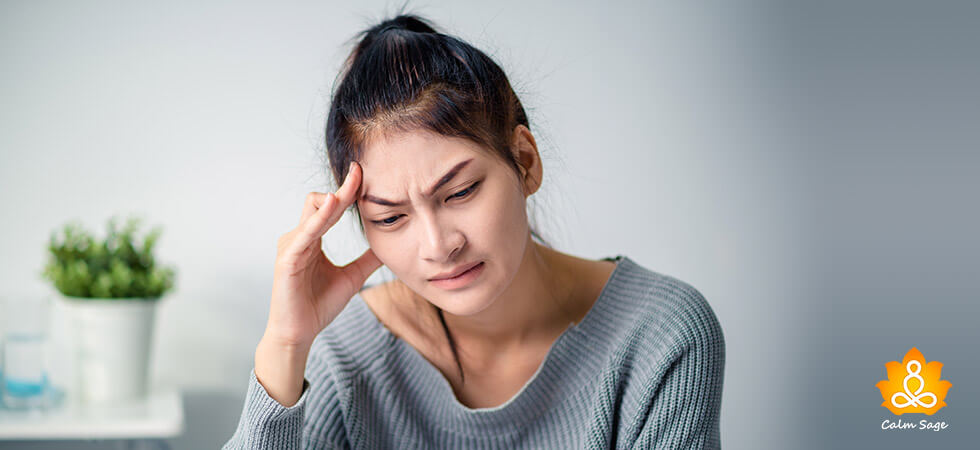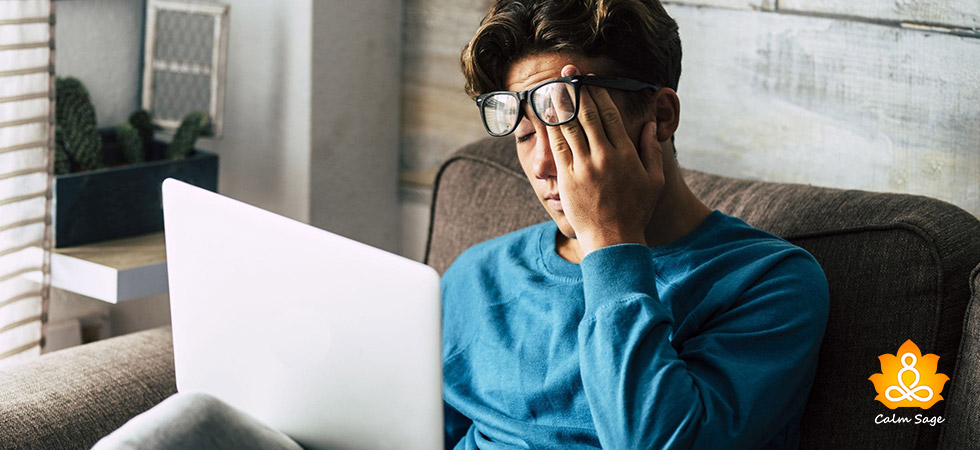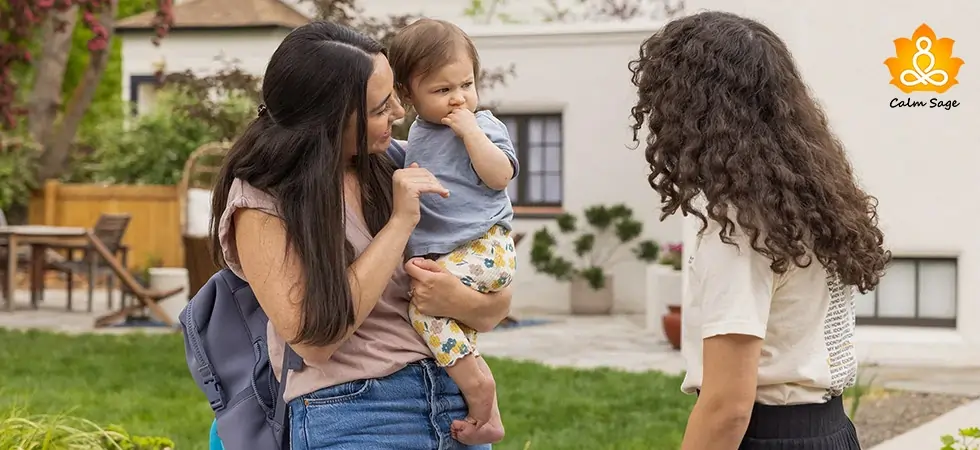Is “Hangxiety” Real? | Tips to Cope With Hangover Anxiety in The Morning After

After a hectic week (or even a particularly stressful day) I won’t blame you if you chose to spend the rest of the hours of your day enjoying a few drinks with your friends. If I say for myself, a night of enjoying my friends’ company with a few drinks does sound fun, but what’s not fun is the hangover that you may experience.
Now, a hangover is one thing – the headache, nausea, the tiredness – it’s fairly easy to grasp the physical symptoms of a hangover, but that’s not all that the morning after can leave us with. For many, the experience of a hangover comes with heightened anxiety and unease which is aptly termed; hangxiety.
A witty combination of “hangover” and “anxiety”, hangxiety is the psychological phenomenon that brings with it anxiety, worries, and unease. In this article, we’re exploring the meaning of hangxiety, its symptoms, what causes it, and how you can overcome hangover anxiety after drinking.
Hangxiety: What Does It Mean?
Hangxiety is a blend of “hangover” and “anxiety” that refers to the experience of heightened anxiety or anxiety-like symptoms that you may experience after a night of drinking. Hangxiety is a feeling of anxiety, restlessness, and unease that you feel during a hangover. While hangxiety is not a formal or official diagnosis, it can be experienced by many people and can significantly interfere with your everyday life.
The Symptoms of Hangxiety
Because hangxiety is not an official medical term or diagnosis, there is no certain set of symptoms that can be used to diagnose the condition, however, if you’re experiencing symptoms of anxiety after drinking then they could be qualified as hangover anxiety symptoms.
Common anxiety symptoms can include;
- Feelings of restlessness or being on-edge
- Experiencing irritability
- Experiencing uncontrollable feelings of worry
- Feeling apprehensive
- Trouble sleeping
- Having ruminating thoughts
- Experiencing headaches
- Having an upset stomach
- Experiencing chest pain
- Experiencing unexplained body aches
- Increased heartbeat
- Sweating and trembling
Why Do You Experience Hangover Anxiety?
Ironically (or not), one of the reasons why you may experience hangover anxiety is alcohol. When you consume alcohol, it stimulates the same parts of the brain (GABA receptors) that are activated by any anti-anxiety medication, explains Dr. David Feifel, medical director at Kadima Neuropsychiatry Institute.
When you drink alcohol, you feel less anxious and more relaxed, so the more alcohol you drink, the more your anxiety is suppressed. Hence, when the alcohol in your body starts receding, it starts a pendulum effect.
The formerly suppressed anxiety goes into overdrive as it tries to find its footing once again. Just like how caffeine acts and you get all jittery, similarly, as you go through a hangover, the suppressed anxiety is released, causing hangxiety or hangover anxiety.
Another reason you may experience hangxiety is dehydration. Alcohol is a diuretic, which means drinking alcohol can increase urine production and cause dehydration. Dehydration can worsen your anxiety symptoms and lead to electrolyte imbalance in the body.
Lack of sleep is another reason why you may feel anxiety after drinking away the night. When you’re high on alcohol, it can be hard to sleep. When you can’t sleep, it puts your body and mind in disarray, leading to emotional dysregulation and imbalance in mood, making your anxiety worse.
Some other reasons you may experience hangover anxiety can include alcohol withdrawal symptoms, genetics, tolerance to alcohol, excessive negative emotions, or pre-existing anxiety disorders.
Can anyone experience hangover anxiety?
While hangxiety is real and common, it can’t affect everyone. Some people are more likely to experience hangxiety and it depends on one’s anxiety and stress levels. If you have poor emotional regulation, then you’re more likely to experience hangxiety symptoms, suggests a 2023 study.
Alcohol can make your anxiety worse, so if you’re already living with anxiety disorders or have a high level of anxiety, then you should avoid drinking alcohol to prevent your anxiety from getting worse.
How to Overcome Hangxiety?
There are many ways to get rid of hangxiety, here are some of the practical ones you can do to overcome hangover anxiety;
1. Manage Your Hangover Symptoms
One of the things you can do to manage your hangxiety is to manage your physical symptoms of a hangover. When you can address the physical symptoms of the hangover, you can feel better mentally. You can try to cure your hangover symptoms by rehydrating, sleeping it off, or eating a light meal.
2. Avoid Caffeine, Drink Water
Next, try to avoid drinks like caffeine or soda in the morning. Coffee might be your go-to morning drink, but when you’re nursing a hangover, caffeine can be the worst drink to have. Instead of drinking caffeine that can give you more jitters and make your anxiety worse, drink plenty of water to rehydrate yourself.
3. Try Mindfulness or Meditation
You can also try gentle mindfulness or meditation tricks to feel better about your hangover anxiety. You can do these exercises lying in bed too, so don’t worry about not being able to sit upright! You just need to close your eyes and focus on your breathing, thoughts, or sensations going through your body.
4. Try Self-Care & Relaxation Practices
When your hangover anxiety makes you feel overwhelmed, try some relaxation or self-care practices. You can try deep breathing, grounding techniques, taking a cold bath, practicing progressive muscle relaxation (PMR), guided imagery, slow walking, or other such activities that can help you draw the focus of your thoughts from anxiety to calmness.
5. Develop Healthy Drinking Habits
If you find yourself often getting anxious after drinking, then it’s time to check in and rethink your drinking behaviors. Try to develop some awareness of why you drink so often and what causes you anxiety after drinking. Knowing the answers to this can help you figure out how to control the anxiety you feel and prevent excessive consumption of alcohol.
What Next?
If your hangxiety is interfering with your everyday life and doesn’t go away with your hangover symptoms, then maybe it’s more than just a post-hangover thing. Try to consult a professional. A therapist can help you understand why you continue to feel anxious after drinking and if it’s the result of an anxiety disorder or something else like an alcohol use disorder.
Hangxiety might not be an official term of diagnosis but it’s nonetheless a real condition that can give you severe distress. While not everyone may experience hangover anxiety, it’s common to experience some symptoms of anxiety. Hangxiety can be a result of dehydration, lack of sleep, or the presence of an anxiety disorder.
If you find yourself feeling anxious after a night of drinking, then it’s recommended you try the above-mentioned ways to cope with hangover anxiety and if your anxiety symptoms persist even after your physical symptoms of hangover recede, then you must consult a mental health professional to understand the true cause of your anxiety.
I hope this article helped you understand what is hangover anxiety, why you experience hangxiety, and how you can overcome anxiety after drinking. You can share your thoughts on hangxiety in the comments below.
Take care and drink responsibly.




















